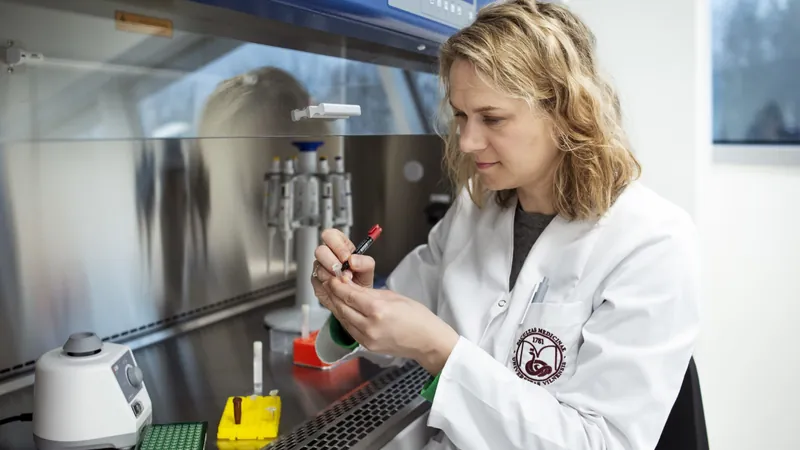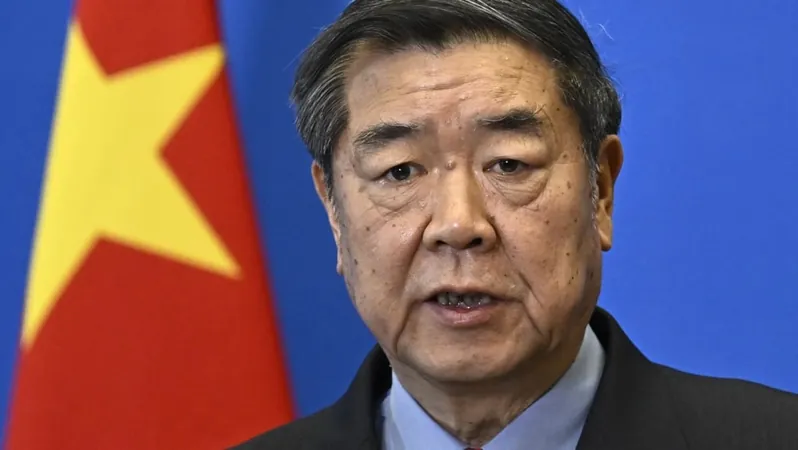
Unlocking the Secrets of Our Ancestors: How Ancient DNA Sheds Light on Our Past and Future
2025-04-24
Author: Daniel
Unearthing the Past Through Ancient DNA
Imagine piecing together the intricate tapestry of human history, one DNA fragment at a time. This is the captivating work of Ingrida Domarkienė, a trailblazer in ancient DNA research and the head of Lithuania's pioneering ancient DNA laboratory at Vilnius University. With her unique expertise rooted in molecular biology and medical genetics, Domarkienė and her team are unraveling the stories of our ancestors, from Iron Age migrations in Lithuania to the tragic aftermath of the Chernobyl disaster.
Insights from Ancient Graves and Chernobyl
Alongside international collaborators, Domarkienė's lab is diving deep into the mysteries held within medieval mass graves in Poland, shedding light on the social dynamics of the time and exploring the movement patterns of Iron Age populations. But their research doesn't stop there; they are also investigating the genomes of Lithuanian cleanup workers from Chernobyl. Through this lens, remarkable genetic adaptations that offer protection against radiation have come to light.
The Challenges of Ancient DNA Research
Delving into ancient DNA is no easy feat. Domarkienė emphasizes the inherent uncertainties of this field. "When an organism dies, its DNA decays, becoming fragmented and contaminated with environmental DNA," she explains. This creates a significant challenge for researchers trying to extract and analyze usable DNA.
Stories of Chernobyl: Resilience Amidst Tragedy
For Domarkienė, one of the most profound aspects of her research has been engaging with Chernobyl survivors. These brave liquidators faced unimaginable horror yet retained an impressive degree of health. Their stories have led researchers to hypothesize that specific genes may provide protective benefits against the adverse effects of radiation and psychological trauma.
Bridging Ancient History and Modern Medicine
But how does studying our past inform our present? Domarkienė believes it offers invaluable insights into modern medical challenges. By investigating genetic variations that contributed to resilience in ancient populations, current medical practices can evolve. She draws inspiration from Nobel laureate Svante Pääbo, whose groundbreaking work on Neanderthal genomes provides a crucial foundation for understanding genetic variations that impact human health today.
The Future of Ancient DNA Studies
As technology advances, the potential for ancient DNA research expands. Domarkienė envisions a future where scientists can uncover deeper sequences and broader datasets, ultimately leading to a comprehensive understanding of our genetic heritage. Integrating findings across diverse ecosystems—humans, animals, and bacteria—could reveal the complex interplay of genetics in shaping not just history but also our future health.
Conclusion: A Deeper Narrative Awaits
Ingrida Domarkienė's work exemplifies the transformative power of ancient DNA research. By stitching together our genetic history, we might not only learn who we are but also how we can improve the lives of those today and tomorrow. The secrets of our ancestors are not just stories of the past; they are keys to unlocking a healthier future.




 Brasil (PT)
Brasil (PT)
 Canada (EN)
Canada (EN)
 Chile (ES)
Chile (ES)
 Česko (CS)
Česko (CS)
 대한민국 (KO)
대한민국 (KO)
 España (ES)
España (ES)
 France (FR)
France (FR)
 Hong Kong (EN)
Hong Kong (EN)
 Italia (IT)
Italia (IT)
 日本 (JA)
日本 (JA)
 Magyarország (HU)
Magyarország (HU)
 Norge (NO)
Norge (NO)
 Polska (PL)
Polska (PL)
 Schweiz (DE)
Schweiz (DE)
 Singapore (EN)
Singapore (EN)
 Sverige (SV)
Sverige (SV)
 Suomi (FI)
Suomi (FI)
 Türkiye (TR)
Türkiye (TR)
 الإمارات العربية المتحدة (AR)
الإمارات العربية المتحدة (AR)